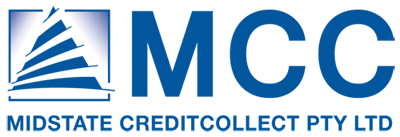PPSR – A “REVS” check for anything over $5,000?
The Personal Property Securities Register (the “PPSR”) has been hailed by some as the most fundamental change to credit in the last 150 years – when the Torrens System for registration of land titles was enacted (circa 1858).
Technically the result of the Personal Property Securities Act 2009 (the “Act”), which was enacted on 30 January 2012, the changes to credit are so fundamental that New Zealand, who enacted a similar regime 10 years ago, are still feeling the impact of the change. The major banks have invested some $50,000,000 internally between them in order to ensure compliance with the new laws, and most of you will probably have received communication from your bank advising that any secured property (apart from land) has now been listed on the PPSR.
If this does not sound like any great change to your life, read on…
Most people will be somewhat familiar with the terms “caveat emptor” (let the buyer beware) and “indefeasible title” (loosely meaning that the right to ownership cannot be challenged). They are more commonly associated with real estate however the principles are now being somewhat extended to personal property (also known as “chattels”). While it would be nice if something as small as your mobile phone could be registered in the same way a car or land is registered (mobile phones in some respects are easier to trace than a stolen car), the costs of maintaining a register for such small items would quickly outweigh the potential benefits. In that regard the PPSR is limited to things valued at over $5,000.
What does this mean?
In the same way a financial institution registers its security over a vehicle, they can now register security over anything valued over $5,000, including artwork, intellectual property, or almost anything that can be identified. For example, if you purchase a billiard table for (say) $20,000 using a personal loan from your bank, the security over the table can be registered with the PPSR. If you then went down to your local billiards table dealer and sold the table to him, following which he sold it to Joe Bloggs (or any third party), Joe may be subject to the bank repossessing the table in the event that you can no longer service the loan.
The PPSR has in fact replaced over 40 existing registers around Australia, eg REVS, and now encompasses far more potential items for security, including Retention of Title claims for those providing goods to others on credit.
Basically the process is the same as when you would previously have checked a used vehicle before purchase, you can now check almost anything (over $5,000.00 in value) before purchase. This is quite simple where the item you purchasing has a serial number, however where the item does not have a serial number but is relatively easily identified, for instance a piece of artwork, you have to search by its name or other identifying medium.
What can you do to ensure you do not find some purchase of yours being repossessed? Do a quick search on the PPSR before purchasing:
Alternatively you can go to providers who provide more services based around the PPSR, for instance VEDA Advantage http://www.veda.com.au/insights/ppsr.dot or GlobalX https://www.legalinx.com.au/site/componentpage.castle?componentContext=feature&id=431b4c00-bb6e-4bb5-91bc-1b1d30ef4a32&pageName=index.





